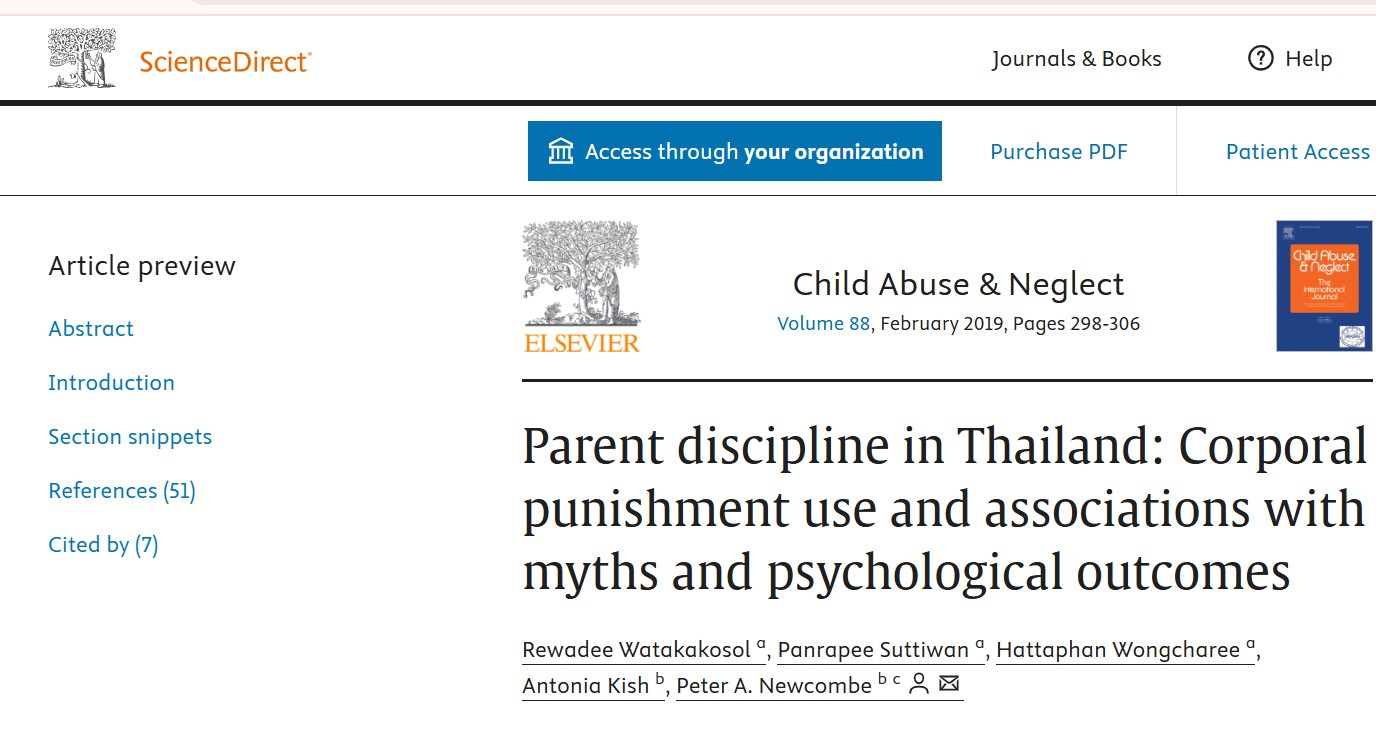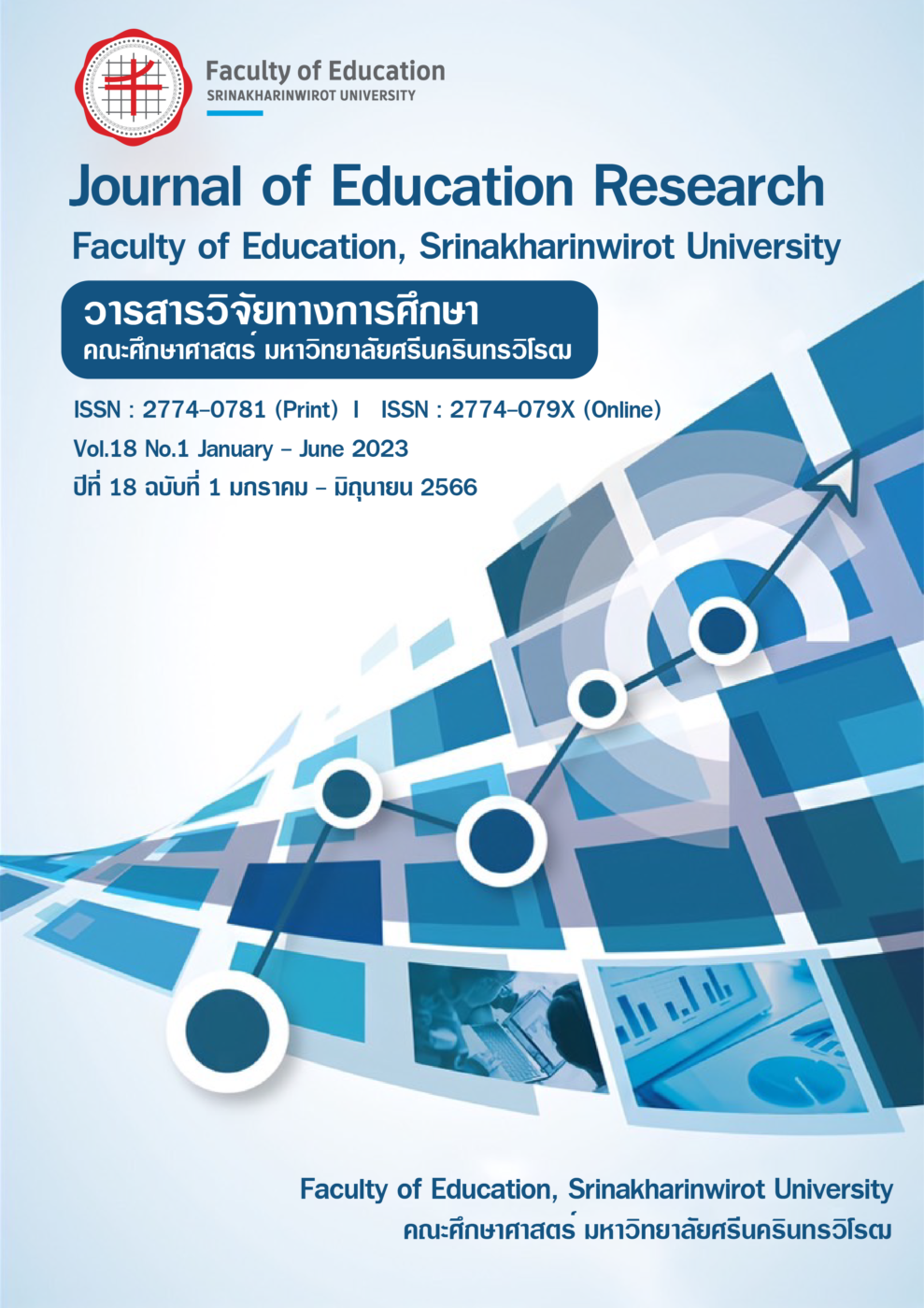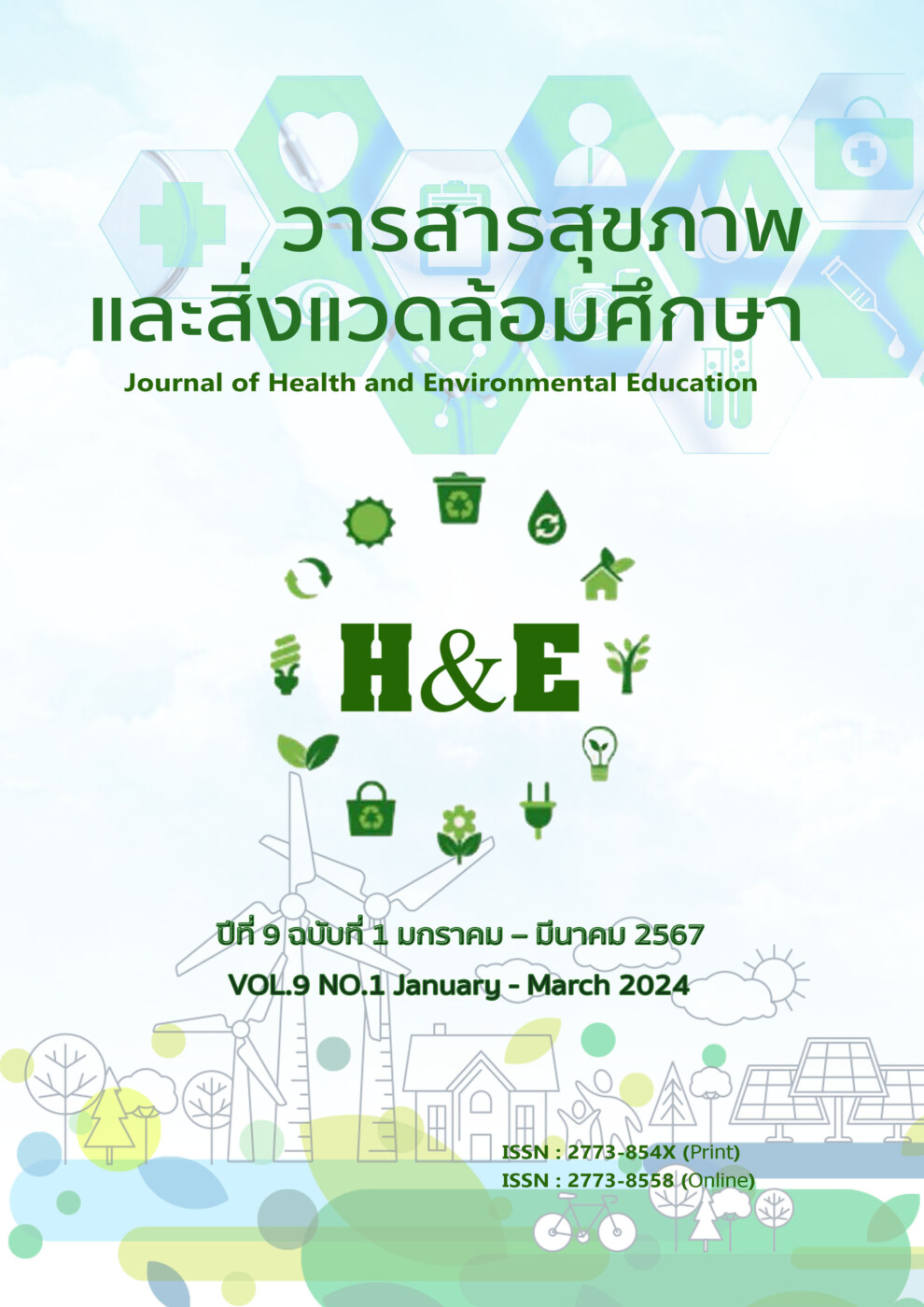Abstract:
A basic human right of all children is protection from physical punishment in all settings. Yet, corporal punishment remains common place within families, at home, at school, and elsewhere. In Thailand, cultural beliefs and values might preserve its use. This research sought to explore the use of corporal punishment in Thai homes. It also aimed to investigate young adult retrospective accounts of parent use of corporal punishment and their associations with psychological attributes and the acceptance of certain myths that might perpetuate its use. Two hundred and fifty young people (Mage = 20.26 years, SD = 1.19) recounted their parent’s disciplining strategies related to when they were 10 years old. They also completed the Personality Assessment Questionnaire (Rohner, 1999), the Corporal Punishment Myth Scale (Kish & Newcombe, 2015) and responded as parents to a number of child misbehavior scenarios. Overall, 80.4% reported some instance of corporal punishment as a 10-year-old with lifetime prevalence at 85.5%. Receiving corporal punishment was related to poorer psychological outcomes as a young adult. Myths about corporal punishment significantly predicted the use of that discipline strategy in the scenarios. The results are discussed in relation to Thai cultural values and beliefs and the need to gather further evidence to support further policy and legislative changes.
Authors:
- Rewadee Watakakosol
- Panrapee Suttiwan
- Hattaphan Wongcharee
- Antonia Kish
- Peter A. Newcombe
Method: Cross-sectional study
Journal: Science Direct
Year: 2019
For more information please click; https://www.sciencedirect.com/science/article/abs/pii/S0145213418304460?via%3Dihub




